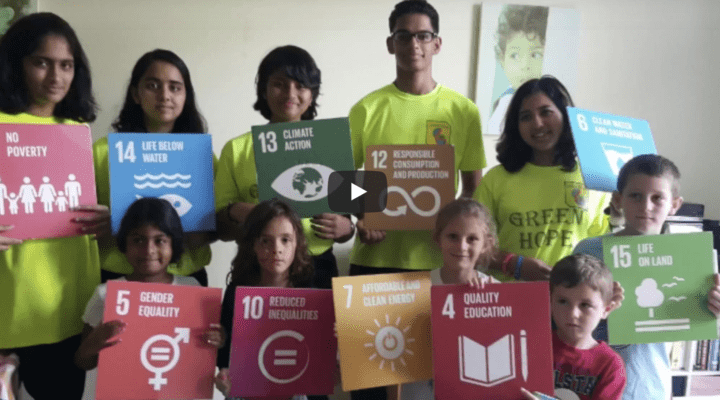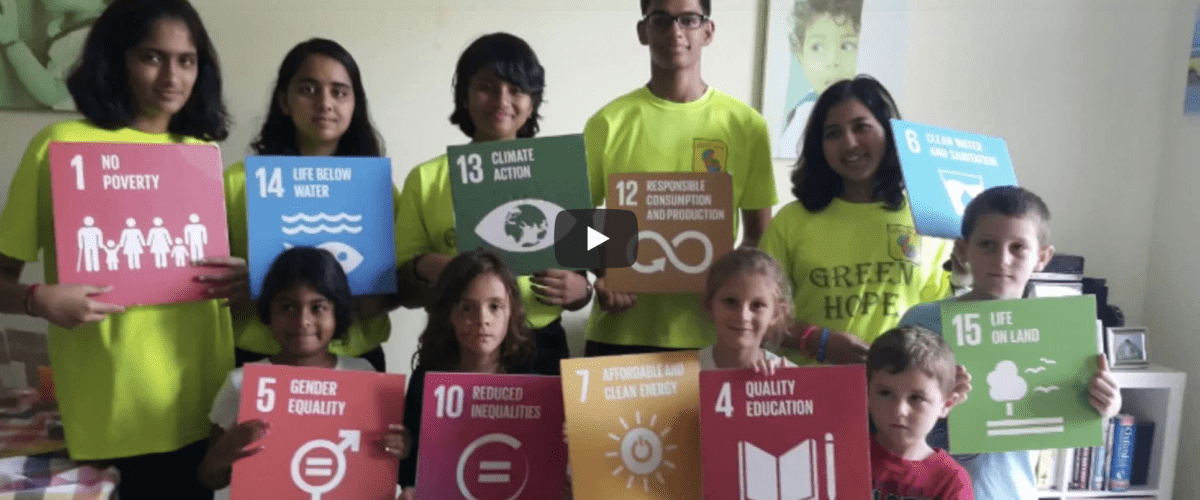The leadership of young people is crucial in helping the world recover from the economic, health and political devastation exposed during the COVID-19 pandemic, according to panelists with the Next Generation Task Force of the Parliament of the World’s Religions.
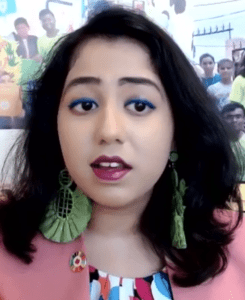
Kehkashan Basu
“The rise of hate in many parts of the world, coupled with the pandemic, has caused a severe regression of peace, freedom, democracy and human rights,” said webinar moderator and task force Chair Kehkashan Basu. “What we must do, as young people, is to ensure we don’t carry forward the endemic fallacies” that perpetuate injustice.
The Sept. 15 panel of young thought leaders also discussed the challenges their peers continue to face in the pandemic, as well as the passion young people bring to addressing issues such as global climate change, the spread of hunger and threats to religious freedom.
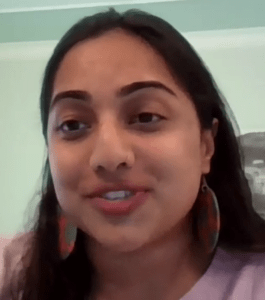
Sara Rahim
Panelist Sara Rahim, international program manager of A Common Word Among the Youth, or ACWAY, detailed some of the key challenges the world’s 1.5 billion 15- to 24-year-olds have encountered throughout the pandemic.
Young people in less-developed areas like the Global South have faced greater physical and virtual isolation due to COVID-19 lockdowns and inequities in digital technology, which have continued to widen economic and educational gaps. One in six young people previously employed lost jobs during the pandemic, while others experienced declines in income due to cuts in wages and work hours, she said.
Speaking from the G20 Interfaith Summit in Italy, Rahim said she’s pressed political and religious leaders attending the event to involve youth in addressing those deficits and in combating the ignorance and fear of “the religious other” that perpetuates social and political tensions.
She also noted that despite these and other hardships, young people have been cooperating with government, civic and religious organizations to tackle the threats to their communities. A quarter of youth, who comprise 16% of the world’s population, are engaged in volunteerism.
ACWAY, which is a youth-led interfaith movement, is advocating for an intergenerational approach to global problem-solving and for young people to take active roles in faith and civic groups “to promote cross-cultural engagement,” Rahim said.
Interfaith education and literacy also must be fostered to engender the dialogue and education needed to heal cultural divisions, she added. “And we need to include young people in decision-making.”

Anshita Hedge
Young leadership and volunteerism have risen to meet the challenges of poverty, food scarcity and “ecocide” that worsened during the pandemic, said panelist Anshita Hedge, chapter head of the Green Hope Foundation, a youth-led, grassroots action and advocacy nonprofit that promotes sustainable development in 25 nations.
Whatever their personal and community hardships, Green Hope has seen young people, and even children, eager to take part in educational and preservation efforts to help save endangered species and clean up pollution, Hedge said.
It is time for “global cooperation and solidarity” that harnesses the energy, enthusiasm and capable leadership of youth in combatting socio-economic and ecological challenges, she added.
But there can be no lasting peace without addressing underlying spiritual and physical issues, said panelist Steve Chiu, the Buddhist Tzu Chi Foundation representative to the U.N.’s Department of Global Communications.
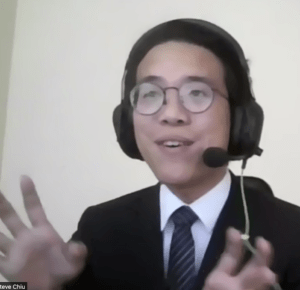
Steve Chiu
He referenced the U.N.’s Sustainable Development Goals as paths toward building that peace. Those goals include quality education, employment, clean water and sanitation, human rights and clean energy.
“You have no sense of hope or tranquility if you do not see where your future lies and if you’re basic needs are not being met,” he said.
But progress has to begin with a “purification of the mind” centered around peace-building, change-making and hope-making from which values can inspire effective advocacy and action, he continued. “Trying to create a more peaceful society is about relationships with each other and the environment we live in.”
Individuals and communities of faith are essential to those connections, Chiu said. “We have to tune in to faith voices to live more spiritual lives and to realize the deep interconnectedness with each other and the world we live in.”
He cited the “culture wars” in the U.S. as an example of how feelings of disenfranchisement can lead to social conflict.
Some Americans “feel marginalized by mainstream culture” which leads to discontentment, anger and feelings of victimization that are then exploited by “bad actors” to stoke further polarization. “War and peace seem to stem from conceptions of scarcity.”
The role of youth in grassroots and interfaith movements is essential to countering these narratives because they have yet to adopt the colonial and other fear-based assumptions that older adults must unlearn, Chiu added. “Faith is the only place where that shift can occur. I have seen no other process that gets us remotely close.”
Related articles:
Gen Z Christians more open to share their faith than Millennials
Millennial, Gen Z Christians support missions — with reservations
On climate change, the political divide has widened as more Americans overall express concern

